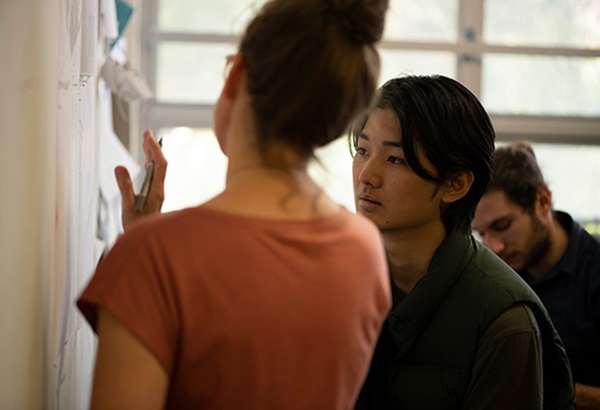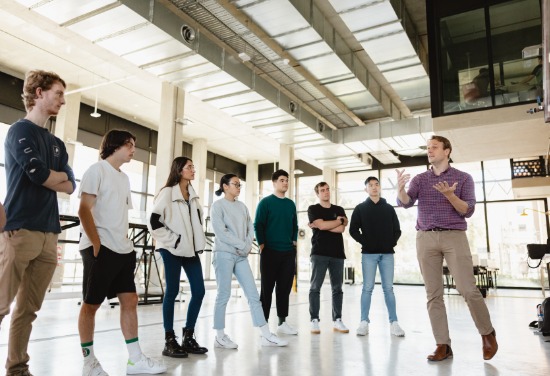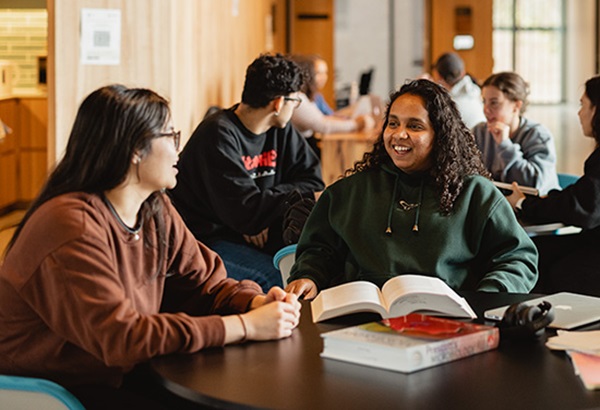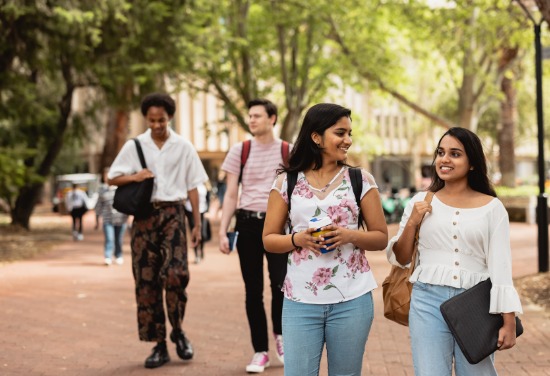Recently, UWA master’s students visited the Richgro Anaerobic Digestion (AD) facility in Jandakot, Perth. The visit gave students a hands-on look at how science is tackling real-world problems – like turning food waste into clean energy. Richgro is home to WA’s only operational anaerobic digestion system and is leading example of how the circular economy works in action.
We caught up with Alton Lin, a Master of Agricultural Science student at UWA, who shared his experience at Richgro through his Science in Practice (SCIE5005) unit – and his journey from Wuhan, China to becoming a passionate advocate for sustainable agriculture.

Meet Alton Lin

"Hi! I’m Alton Lin. I’m currently completing my Master of Agricultural Science at The University of Western Australia (UWA), and I previously graduated with a Bachelor’s Degree in Animal Science from Huazhong Agricultural University in China. I came to UWA through the Outstanding Student Abroad Program and recently finished my honours thesis with a high distinction.
My academic and professional interests focus on sustainable agriculture, land care, and livestock systems and I’ve had the opportunity to intern both at a large-scale dairy farm and with the Town of Bassendean on urban tree data collection.
A fun fact about me is that I love volunteering. Last year I received the Outstanding Volunteer Award at the Wuhan International Marathon. It was inspiring to be surrounded by people pushing their limits, and I try to carry that same energy into my work and studies!”
Why Agricultural Science?
“Growing up in Wuhan, I was always curious about how food was produced and how we could improve farming practices to be more efficient and sustainable. During my undergraduate studies in Animal Science, I became especially interested in the broader systems that support agriculture including soil health, plant science, climate challenges, and the connection between livestock and the environment.
After interning at a large-scale dairy farm and seeing first-hand both the potential and the challenges in modern agriculture, I realised I wanted to build a career that combines hands-on fieldwork with science-based decision-making. That’s what led me to pursue the Master of Agricultural Science at UWA—it offered the perfect mix of technical knowledge, practical experience, and industry exposure to help me make a real impact in sustainable agriculture.”
Inside the Richgro Facility
“The Richgro Anaerobic Digestion facility is a high-tech site that turns food and organic waste into clean energy. The facility can process around 50,000 tonnes of waste each year—from places like supermarkets and breweries and turns it into biogas, which powers the site and even supplies electricity to the local grid.
It also produces a liquid biofertiliser from the leftover material, which is used to improve soil health. Overall, it was a great example of how we can reduce waste, lower emissions, and support sustainable farming all at once.”
What Alton learned
“One key lesson I took away from the Richgro Anaerobic Digestion facility is the importance of turning waste into a resource. It showed me how food and organic waste—things we usually throw away can be reused to produce clean energy and valuable fertiliser.”
Looking to the future
“Yes, I can definitely see myself working in a field related to renewable energy, waste management, or sustainable infrastructure. When I graduate, I’d like to work in a role that combines my background in agricultural science with sustainable practices, whether that’s in renewable energy systems for farming, waste-to-energy projects, or sustainable infrastructure development. I see myself contributing to solutions that not only help businesses become more eco-friendly but also promote environmental sustainability for future generations.”
Real Science, real impact
“Experiences like the Richgro visit really help shape my future as a science professional by showing how classroom concepts apply in the real world. It gave me a clearer picture of what sustainability looks like in action and inspired me to think beyond theory to focus on practical, impactful solutions."
It also reminded me of how important collaboration, innovation, and adaptability are in science careers. Seeing professionals from different fields like engineering, biochemistry, and environmental science working together showed me that being a science professional isn't just about knowledge it's also about communication, teamwork, and solving real-world problems.”
Interested in a versatile career in environmental sustainability and innovation? Discover your pathway with our courses in the School of Agriculture and Environment.






